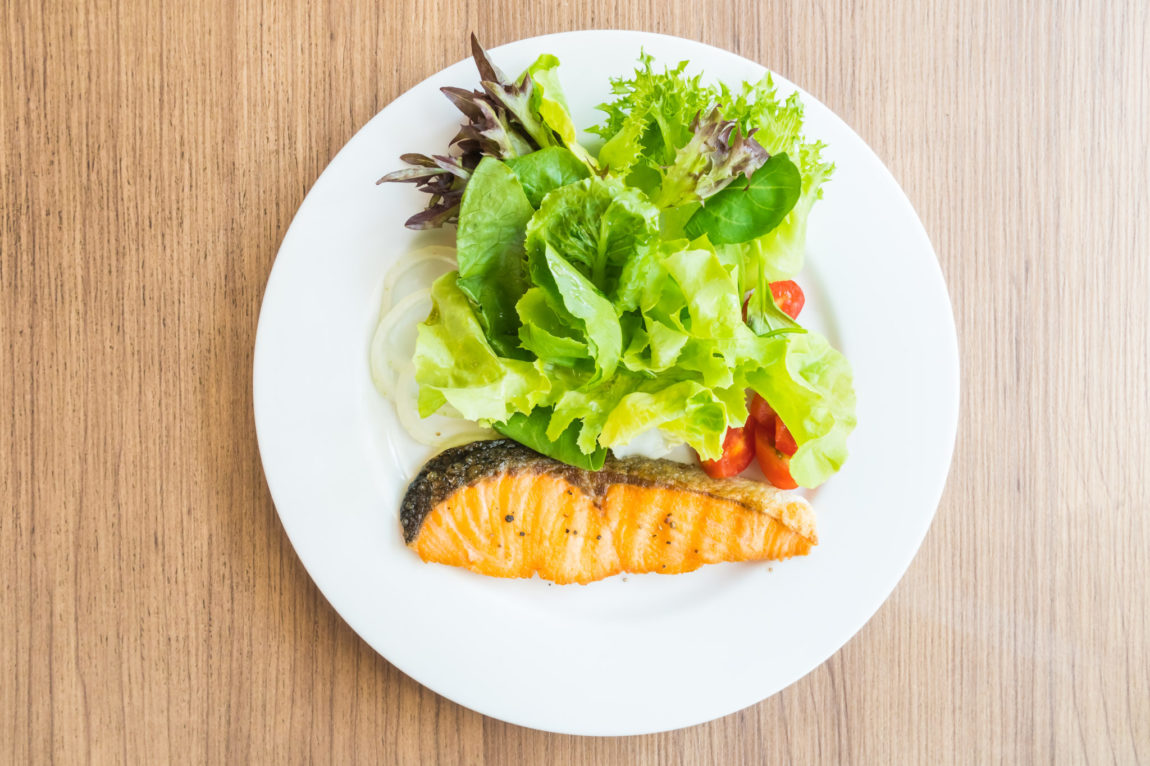
Diet Before and After a Gastric Sleeve
Embarking on a journey toward weight loss with gastric sleeve surgery can be exciting and stressful. Although this procedure is designed to help patients lose weight, it’s up to the individual to make good dietary choices, increase physical activity, and successfully shed the weight. Food intake in the days and weeks before and after the surgery should be restricted and highly nutritious. Your doctor will provide more detailed information when the time comes, but here’s an overview of your diet before and after a gastric sleeve.
Two to Three Weeks Before Surgery
Begin developing healthy eating habits before going into surgery. Losing weight prior to this procedure lowers the risk of complications and makes it easier for the doctor to perform the surgery. Eating healthy foods beforehand also boosts the immune system and speeds up recovery time. Plan to change your diet at least three weeks prior to the procedure to allow time to adjust to the new routine. Follow these guidelines:
● Make healthy food choices as often as possible
● Fresh foods and water
● Consume protein first
● Eat at least 60 grams of protein daily
● Eat small portions
● Take small bites
● Chew each bite thoroughly
● Eat slowly
● Limit eating to no more than three small meals and two small snacks per day
● Limit high-fat foods
● Avoid fibrous foods, including broccoli, celery and asparagus
● Avoid starchy foods, including pasta, bread and rice
● Avoid spicy or greasy foods
● Avoid sugar
● Avoid whole milk products
● Take a multivitamin
● Drink plenty of low-calorie fluids
● Avoid sodas and sugary drinks
● Limit caffeine
One Week Before Surgery
In the week prior to surgery, your diet will change further. At the one week mark, you may need to stop taking or change medications. Talk to your doctor about the medications you take to find out if any adjustments are necessary. Two days before surgery, patients switch to a clear liquid diet to start clearing out the digestive system. At midnight before surgery, patients need to completely stop eating or drinking anything.
Post-Op Diet Stage One
After surgery, you’ll start with a clear liquid diet. This can last from one to seven days depending on your doctor’s recommendation. Avoid using a straw or drinking from a bottle since this can cause gas bubbles. Always sip liquids slowly, don’t gulp, and stop when you feel full. You should consume at least 48 ounces of fluids; 64 ounces is preferable. Keep track of your fluid intake and try to drink small amounts throughout the day. Your goal during this phase is to stay hydrated and give your stomach time to heal. Approved liquids include:
● Water
● Ice
● Clear beef, chicken or vegetable broth
● Sugar-free drink mixes
● Sugar-free Jell-O
● Flavored water
● Sugar-free popsicles
● Caffeine-free, unsweetened tea
● Thin or diluted juices, such as apple, cranberry and white grape
During this phase, you may also begin taking supplements or vitamins as recommended by your doctor.
Post-Op Diet Stage Two
Stage two adds thicker drinks and smooth foods to the stage one diet. The doctor will determine when patients are ready to move from stage one to stage two. Everything you consume at this point should be soft and smooth; the consistency should be thin enough to be strained through a straw, but continue to avoid using a straw. Sip slowly and always stop as soon as you feel full. Stage two includes:
● Protein shakes
● Cream of Wheat
● Smooth cream soup
● Sugar-free Carnation instant breakfast
● Applesauce
● Greek yogurt
● Sugar-free sherbet
● Sugar-free juice, like vegetable juice and pulp-free orange juice
● Skim or lactose-free milk products
Post-Op Diet Stage Three
With stage three, patients begin trying soft foods. Add new foods slowly and one at a time to make sure you can handle them. Begin by pureeing one of the following with water, broth, milk or juice:
● Cooked vegetables
● Beans
● Fish
● Eggs
● Lean ground meats
● Soft fruits After adjusting to pureed foods, patients can gradually try soft foods like cooked vegetables, soft fruits, and lean ground meats.
Post-Op Diet Stage Four
In stage four, patients can begin slowly testing solid foods and transitioning to a new long-term diet, which should follow the same healthy guidelines adopted prior to surgery. Try one new food at a time to see if you can handle it. At each meal, aim for eating at least four ounces of solid foods, but not more than eight ounces. You should have at least three ounces of protein at each meal. Build up to include all types of textures, remembering to chew your food well before swallowing. Most patients are eating solid foods around three to four weeks after surgery.
General Diet Guidelines
Throughout the surgery and recovery process, there are some general guidelines that it’s important to keep in mind:
● Introduce one new food at a time
● Chew all food thoroughly
● Eat protein first
● Make healthy food choices
● Eat three small meals per day
● Drink plenty of fluids
● Maintain a food journal
● Eat slowly, a meal should take 20-30 minutes
● Avoid drinking for 30 minutes before and after a meal
● Stop eating immediately if you feel full
● Measure foods and liquids
● Use small plates and utensils
● Avoid alcohol
● Take vitamins and supplements as recommended by your doctor
Gastric sleeve surgery can be a great tool to help patients lose weight. Your diet will change dramatically in the days and weeks surrounding the surgery, but carefully following your doctor’s instructions, learning to make healthy food choices, and staying dedicated can make the weight loss journey a success.
